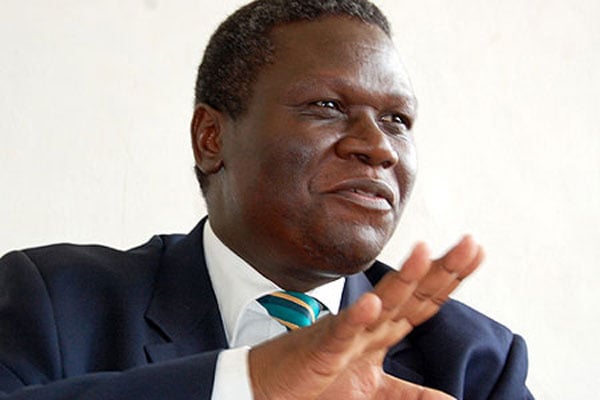Budget crunch: Is our debt a mountain, anthill or a molehill?

Norbert Mao
The word budget originated from 15th Century France. A bougette was a small leather pouch used to carry money. It did what wallets and purses do today. After about a century, the word metamorphosed into budget, meaning the money inside the bag. And that has remained the meaning of budget since - how money gets into the bag and how and why it gets out of the bag.
Today, there’s no discussion of the budget without mention of the skyrocketing indebtedness of our blessed republic. Uganda is currently indebted to the tune of Shs70 trillion!
The reason the national debt is a big concern is because servicing the mounting debt takes a huge chunk out of our revenue. To keep the country moving, the government has to borrow even more. As the debt increases, so does the amount required to service it. This is compounded by the rising interests. In the circumstances we can conclude that we’re in a debt trap.
None other than the minister of Finance has admitted that our debt is unsustainable and that we risk defaulting unless the creditors exercise leniency and relax the terms. But while we wait for the creditors to show clemency, we can also decide to not borrow anything at all. That in itself would be a great victory. From then every coin we pay our creditors would make a dent in our debt portfolio.
Some government officials continue to downplay the problem of debt. They accuse those complaining of the country’s debt of making a mountain out of a molehill! Yet they are the ones making a molehill out of a mountain! So what is to be done?
First, we have to audit the debt. What did the borrowed money do? Did it enhance our capacity to increase revenue? Did it enhance our ability to save money? For example, if the borrowed money improves infrastructure which improves market access and increases the revenues of producers and traders who then pay more in taxes, then the borrowing makes sense. Also, if health infrastructure prevents disease then the government saves money that would have gone into treating illnesses. Prevention is cheaper than cure!
* * * * * * * * * *
And now to the International Criminal Court (ICC) and LRA’s Dominic Ongwen. It is a long story. A child gets abducted by a rebel force right under the nose of the government army supposed to protect him. He is recruited and trained by his captors and turned into a lethal fighting machine. He becomes a victim-perpetrator.
After ratifying the Rome Statute which set up the ICC, Uganda became the first country to refer a case to the court in 2004. The ICC issued warrants of arrest for five top LRA commanders. The hunt for Kony and the LRA was a mission riddled with frustrations. With pressure mounting for talks, the Uganda government, to its credit, agreed to talk to the LRA.
An amnesty law was also in operation promising a blanket amnesty to ex-LRA combatants. In those circumstances, the ICC warrants cast a dark cloud over the talks. Kony remained extremely suspicious of both the Uganda government and the international community.
Now the ICC has convicted Dominic Ongwen and has sentenced him to 25 years in jail. Ongwen has been rightly held accountable. But the context remains with the potential of recurrences. Our opinions may only be footnotes but we shall air them.
In my opinion, the primary reason why the ICC was set up was to deal with governments that commit war crimes and crimes against humanity. Even heads of state are not immune from prosecution. The ICC remains a bulwark against impunity. Nevertheless, the ICC was also never intended to oust the jurisdiction of national courts.
Outlaws can be dealt with but governments use the cover of sovereignty to kill their own citizens. If one tallies up totals, one will be surprised to learn that lawfully established governments have killed more people than armed outlaw groups. Governments committed the genocide in Rwanda and Nazi Germany. The Uganda government carried out the forced displacement of people into IDP camps in northern Uganda. The conditions in these camps led to more deaths than even the LRA would dream of!




